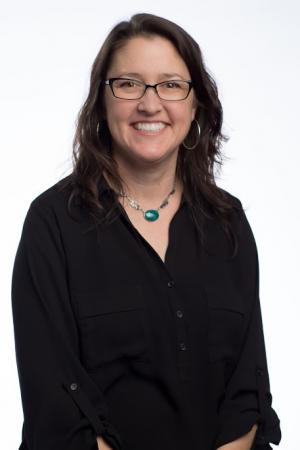Website helps faculty focus on disabilities’ impact on classroom

In the realm of teaching and learning, the impact of disabilities on students and faculty may not always be a top-of-mind topic. It may even be an unexpected consideration.
With that understanding, the Disabilities Committee at CU Denver has developed a website highlighting disability information for faculty.
Amy Vidali, an associate professor of English at CU Denver, specializes in rhetoric, writing and disability studies. She chairs the CU Denver Faculty Assembly committee, which launched the website about a year ago. Its development is ongoing, including the recent addition of a Syllabus Statement on Disability and Access.
“Faculty often have questions – ‘I’m told that a student needs a note taker, but what do I do? How do I start these conversations?’” Vidali said. “If you’re not thinking about disabled students until you start working with them, it can be really hard to shift. We’re really trying to get faculty to think about disability while they’re planning a course, rather than waiting for a student to present an issue.”
Vidali calls the syllabus statement a faculty-to-faculty resource that’s adaptable to many educational settings.
“We are trying to make it part of the conversation that faculty are having with students,” she said. “My experience, and that of a lot of faculty, is that disability is not really a problem in the classroom, but is something that can enrich the classroom. It can make it exciting. I want to put the bigger frame on disability as a diversity issue. We want the legal and policy issues to be solved, but also want to celebrate the diversity of students on campus and celebrate disability as part of that. I’m always trying to balance those two things.”
As both chair of the committee and a faculty member who works in disability studies, Vidali frequently fields questions about accommodating students with disabilities. The website – which also offers information for faculty who are disabled – is another resource.
“Someone might say, ‘Oh my gosh, I have disabled students in my class – what do I do? I don’t want to do the wrong thing,’” Vidali said. “Of course, we want to make sure people are compliant with the Americans With Disabilities Act and other regulations. But we’re also really interested in, for lack of a better word, normalizing disability on campus. We’re trying to raise awareness.”
Vidali noted a National Council on Education estimate that 11 percent of students nationally are registering for disability services at higher education institutions. Learning disabilities are most common, followed by psychosocial disabilities.
That 11 percent may be a low estimate of the total number. Many who qualify might fear the stigma that could accompany requesting such status. Also, many students do not register with Disability Resources and Services because of the cost of having their disabilities documented – sometimes around $1,000, though CU Denver offers some low-cost options.
For more information on the committee and the website, contact Vidali at amy.vidali@ucdenver.edu.

